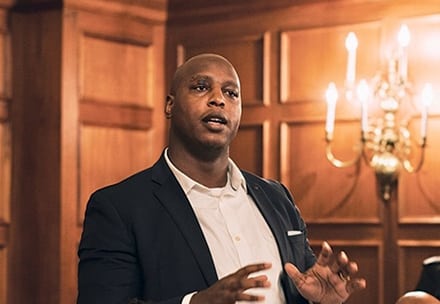by Williams D. Brack, Special to The New Tri-State Defender
Some refuse to acknowledge past injustices as a direct cause of the current state of African-American wealth and business community. With those people particularly in mind, let’s examine the grocery business.
In the early 1900s, Malone & Hyde, a wholesale food distributor and grocery store chain, was founded. Malone & Hyde grew into a successful enterprise and allowed its owner, J.R. Hyde Sr., to pursue his passion for philanthropy, contributing to numerous charities, some of which benefited the African-American community.
Mr. Hyde Sr. passed Malone & Hyde down to his son, who passed the business down to his son, Joseph “Pitt” Hyde III. Pitt Hyde owns AutoZone and set up the Hyde Family Foundation, which continues the legacy of philanthropy started by his grandfather.
In 1892, People’s Grocery was a located on Mississippi and Walker, a few blocks way from Lemoyne-Owen College. People’s Grocery was a thriving business owned by three African-American men – Thomas Moss, Calvin McDowell and Will Stewart. In 2017, we commemorated the 125th anniversary of the People’s Grocery Lynching.
Moss, McDowell and Stewart were lynched. The next day, a mob ransacked People’s Grocery and the store was closed. Within a few months, William Barrett, a white man and proprietor of a rival store in the area, bought the establishment for pennies on the dollar, robbing future generations of opportunities and philanthropy.
Small business is the backbone of the economy and African-American employers tend to hire African-American people at higher rates than non-African-American employers. That is part of the backdrop for Memphis’ 800 Initiative.
Mayor Jim Strickland is proposing $500,000 in city funding each of the next three fiscal years to help fund a new initiative to bolster the city’s 800 minority-owned businesses that have paid employees. Start Co. President Andre Fowlke said only 800 out of 39,000 African-American businesses in Memphis have a payroll of some kind.
Despite the shockingly low number of African-American businesses with employees, there is a lot to like about this initiative, with two notable exceptions: the funding amount and lack of funding for aspiring entrepreneurs.
The City of Memphis should provide more for this initiative. After all, the city provided the private owners of Crosstown Concourse $15 million, spent $16 million on a parking garage for private developers of Overton Square, and Southbrook Mall received $1.5 million of taxpayer money.
Also, a portion of the funds should be set aside for aspiring African-American entrepreneurs. The mayor has a list that reflects products and services that the city needs and that also points to areas where African-American businesses are not present. A portion of city funding should go to aspiring entrepreneurs starting such businesses, with the City of Memphis as first customer.
This funding will allow African-American businesses to hire more, lowering the African-American employment rate and creating more tax revenue and economic development for the city.
Given that African-American wealth has been intentionally sabotaged, tAfrican-American wealth must be intentionally created.
THE SERIES IN REVIEW
PART I: The intentional sabotage of African-American wealth.
PART II: Ongoing discrimination – connecting the dots.
PART III: Homeownership as a solution to improving African-American Wealth.
(Williams D. Brack is a commercial banker, civic volunteer, and community activist. He can be reached at williamsbrack@gmail.com.)




